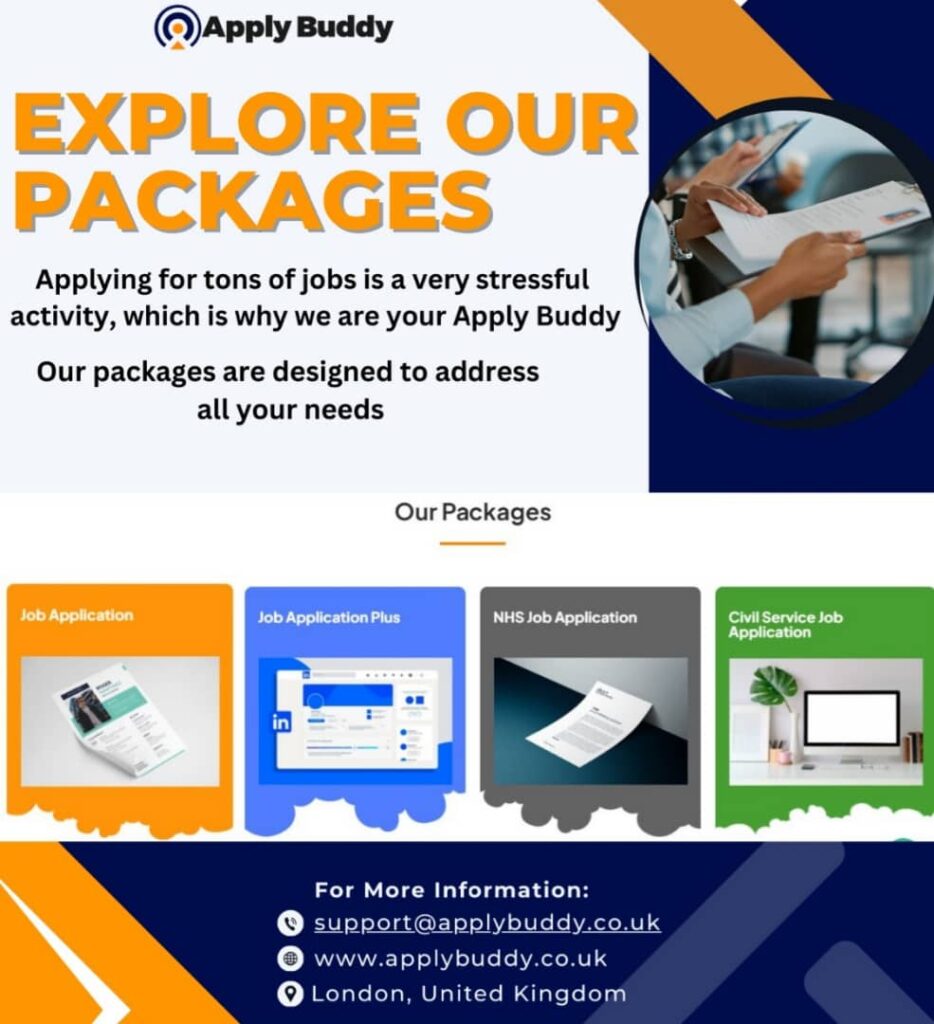Knowing how to optimise your CV to get interviews in the UK can be the game-changer that moves your application to the top of the pile. A well-crafted CV isn’t just about listing your experience. It’s about presenting your skills, achievements, and professional qualities in a way that resonates with recruiters.
Many applicants miss opportunities simply because their CVs aren’t aligned with current UK hiring expectations or designed to pass applicant tracking systems (ATS). This guide will walk you through each essential element, from structuring and formatting to keyword optimisation, so your CV catches the eye of recruiters and secures the interviews you’re aiming for in the UK job market.
Why CV Optimisation is Essential for Job Seekers in the UK
Job market competition is fierce, especially in the UK. A CV that doesn’t stand out risks being overlooked, no matter how qualified the candidate may be. Employers sift through hundreds of CVs for a single role, so ensuring yours is crafted to grab attention is essential. CV optimisation, when done properly, can help you to stand out in a competitive job market and enable you to meet employer expectations, as we shall discuss in depth below.
Standing Out in a Competitive UK Job Market
In a crowded, competitive, and somewhat saturated field, a standout CV isn’t merely an advantage; it’s a necessity. UK employers immediately seek a CV that communicates relevance, quality, and professionalism. This process, often called CV differentiation, involves content and presentation that is unique, tailored, and irresistible.
By tailoring your CV to showcase your unique skills, experiences, and achievements, you’re more likely to make an impression. And guess what? Recruiters spend an average of six seconds per CV during the initial scan, so it needs to make an impact fast.
Meeting UK Employers’ Expectations
But why do UK employers have specific expectations? Understanding this can be your ticket to standing out. UK hiring practices often value directness, relevance, and conciseness. Recruiters seek evidence that candidates can meet the job requirements, so conveying these qualities in your CV is crucial.
Evidence, in this sense, is an achievement-based CV, not a mere doer description. This point buttresses the need to review essential elements of an optimised CV for the UK job market.
Read also: How to Write an ATS-Friendly CV

Essential Elements of an Optimized CV for the UK Job Market
Acing how to optimise your CV to get jobs in the UK job market requires certain essential elements. You must incorporate elements that enhance readability, relevance, and structure. Here’s how to ensure each section works toward a single goal—getting you to the interview stage.
Tailoring the CV Profile and Summary
The profile or summary section is often the first thing recruiters see. Optimising your CV to get interviews in the UK starts with crafting a compelling, concise summary that aligns with the job description. Include a few lines summarising your core skills, years of experience, and career highlights. For example, a statement like, “Experienced digital marketer with over five years in the UK tech industry, specialising in SEO and social media strategy,” quickly tells recruiters what you bring.
Highlighting Relevant Skills and Experience
To appeal to UK employers, only include skills and experiences that directly relate to the job role. This strategy demonstrates that you understand the job’s requirements and have honed the skills to meet them. Incorporate role-specific skills under clear section headings and use action-oriented language such as “developed,” “managed,” and “implemented” to illustrate past successes. UK recruiters prefer CVs that cut to the chase, so keep this section concise and focused.
Including Quantifiable Achievements
UK employers love measurable successes, as they validate your capabilities with concrete evidence. If you’re unsure how to quantify your achievements, consider the results you’ve driven—perhaps “increased annual revenue by 15%” or “led a team that completed a project two weeks ahead of schedule.” Such specifics bring depth to your CV and catch the recruiter’s attention. Please don’t shy away from numbers; they are your ally in making your CV shine.
Read also: How to Use a Recruitment Agency to Find a Job
Adding Relevant Keywords for Applicant Tracking Systems (ATS)
In the digital age, a CV without the right keywords risks being filtered out by Applicant Tracking Systems (ATS). When optimising your CV for ATS in the UK job market, study the job posting closely. Identify key phrases such as “project management,” “data analysis,” or “customer service excellence” and embed these terms naturally into your CV. With strategic keyword usage, your CV can navigate ATS filters and reach a human recruiter.

Meet Apply Buddy, your job application assistant designed to help you land interviews faster!
With NHS, Civil Service, global job application expert tips, CV optimisation tools, and tailored job alerts.
Apply Buddy simplifies your job search and boosts your chances of standing out.
Get started with Apply Buddy and achieve your career goals!
Formatting Tips to Make Your CV UK-Friendly
In the UK, specific unwritten rules govern CV layout and formatting. Adhering to these conventions demonstrates your awareness of local professional standards, which helps make a solid first impression and signals your fit for the UK job market.
Choosing the Right Font and Style
Using a professional, clean font is one of the simplest ways to make a positive first impression. Stick to widely accepted fonts like Arial, Calibri, or Times New Roman, and ensure font sizes are between 10-12pt for readability. A sleek, uncluttered layout is crucial for keeping recruiters engaged.
Using Bullet Points for Easy Scanning
UK recruiters are known to appreciate clarity, and bullet points are a great tool to convey your experience and skills quickly. Arrange your information into easy-to-scan bullet points rather than long paragraphs. For instance, break it into bite-sized highlights instead of detailing an achievement in a dense text block. This format is beneficial when summarising duties in previous roles or listing skills and achievements.
Read also: How to Talk About Your Skills in an Interview
Keeping the CV Length to Two Pages
The ideal CV length in the UK is two pages. Why? It’s enough space to cover essential details without overwhelming the reader. While some industries may allow exceptions, the rule of thumb is to avoid going overboard. Keeping it to two pages ensures that only the most relevant information is presented, improving readability and making your CV easier for recruiters to digest.
Common Mistakes to Avoid in Your UK CV
To create an optimised CV for the UK market, avoiding common pitfalls that may hinder your chances is crucial. Even highly qualified candidates can miss opportunities if their CVs contain avoidable mistakes, affecting how recruiters perceive their suitability.
Using Generic Language and Jargon
Generic terms like “team player” or “hardworking” dilute the impact of your CV. Instead, provide context or specific examples that demonstrate these qualities. Avoid industry jargon, as it may not be understood by everyone reviewing your CV. Instead, use simple, direct language to convey your strengths.

Overloading with Irrelevant Information
Relevance is vital when optimising your CV for UK employers. Avoid the temptation to include every position you’ve held. Instead, focus on roles and responsibilities aligning with the job. A CV overloaded with unnecessary information dilutes your message and can lose the recruiter’s interest. Keep it targeted, and only include details that will advance your candidacy.
Failing to Proofread and Edit
Spelling errors and typos are among the top reasons CVs get discarded, especially in the UK, where attention to detail is highly valued. Proofreading your CV demonstrates professionalism and precision. A second pair of eyes, such as a trusted friend or a professional CV editor, can help you catch errors you might overlook. A polished, error-free CV is more likely to leave a positive impression.
FAQs: How to Optimise Your CV to Get Interviews in the UK
What are the most important sections to include in a UK CV?
The most critical sections in a UK CV are the contact information, profile/summary, work experience, skills, education, and achievements. Tailor each to the job using keywords and measurable successes. Formatting for clarity, keeping it concise, and maintaining a two-page limit also make a strong, effective UK CV.
How can I make my CV stand out to UK employers?
To make your CV stand out to UK employers, customise it to the job with relevant skills, keywords, and quantifiable achievements. Start with a compelling profile summary, use bullet points for readability, and keep the layout clean and professional. Tailoring your CV shows attention to detail and genuine interest.
What is the ideal length for a CV in the UK?
In the UK, the ideal CV length is two pages. This length allows enough space to showcase relevant skills, experience, and achievements without overwhelming recruiters. Keeping it concise helps focus on essential qualifications, aligning with UK employer expectations for precise, targeted information that directly relates to the job applied for.
How do I tailor my CV to pass UK applicant tracking systems (ATS)?
To tailor your CV for UK applicant tracking systems (ATS), naturally incorporate relevant keywords from the job description within your experience, skills, and achievements sections. Use standard section titles like “Work Experience” and “Skills,” avoid complex formatting or graphics, and focus on clear, specific language to increase ATS compatibility and visibility.





